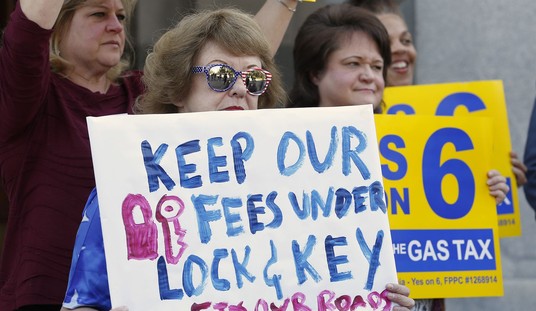In modern politics, if you have a better narrative than the other guy, your chance of swaying the public at large to your point of view increases substantially.
As we have seen, the narrative doesn’t necessarily have to contain facts, or even represent the truth. What matters is if it sounds plausible and plays effectively to the preset prejudices and opinions of the majority.
In this respect, the two competing narratives involving the foreclosure mess may both be successful in demonizing pet targets like big banks or ACORN. But as far as reflecting the reality of the problem, both narratives come up considerably short.
On the left, it’s heartless, greedy banks foreclosing illegally on tearful, innocent homeowners, throwing children and grammas out in the street for no reason hardly at all. On the right, it’s sinister forces manipulating the system in order to allow deadbeat homeowners to remain in houses as a result of nothing more serious than a paperwork snafu, despite the fact that they should long ago have been foreclosed upon and evicted.
Compassion versus personal responsibility. Class warfare versus the politics of resentment. As political narratives, both succeed in playing to the emotions and preconceived notions of their respective partisans. But as commentaries on what is actually happening, they are wildly off base.
By any measure, we are facing an extremely serious crisis that not only affects foreclosures, but mortgage securities, the financial viability of banks that are still “too big to fail,” and, most importantly, the rule of law in America. Silly, pretentious attempts to gain political points in this crisis will only make it more difficult to act when the crunch comes.
Is a crunch coming? The uncertainty alone is already affecting the housing market, bank stocks, the credit markets, and the economy in general. And until a way can be found out of this mortgage quicksand, it is likely that those trends will continue, threatening to throw the economy back into recession and perhaps even initiating another financial meltdown similar to the one we experienced in September of 2008.
What exactly happened and why? In large measure, we are suffering a paperwork hangover from the mortgage security binge of the first years of the century when mortgages were pooled and sold in chunks to investors, ostensibly to spread the risk. (A good primer on the crisis in foreclosures can be found here.)
Here’s where things get tricky. When a mortgage is securitized, the investors in the mortgage bonds don’t get assignments or notes. The investment vehicle doesn’t get the assignments or notes either. Instead, the physical notes are typically sent to a document repository company. The transfer of interests is noted in an electronic database.
But during the height of the housing bubble, investment banks were churning out mortgage bonds in such a frenzy, sometimes the assignments never got executed and mortgage notes never got delivered. Keep in mind that this was during the years when lenders were giving out low-doc and no-doc mortgages. It was inevitable that the fast and loose and slightly documented culture would not stop at the mortgage originator but stretch all the way through the process.
Fast forward to the housing collapse and millions of loans going into default. The banks were overwhelmed with a tsunami of paperwork and employees, and under pressure to keep the process moving forward. They ended up falsifying signatures, not reading what they were signing off on, failing to attach the proper “assignment” papers to the foreclosure docs, and allowing other irregularities that threw the entire foreclosure process into question.
In addition, the process is so sloppy that a very small number of homeowners who should not have been foreclosed upon received notices that they were in default. While not a significant number when placed against the millions of homeowners who deserved to be evicted, these snafus cry out for redress and the wise decision was made by several large mortgage holders to halt the foreclosure process until things can be sorted out — if they can be sorted out. The probability is that many of those assignment papers are probably lost for good, so that the legal process in an untold number of cases that involve removing the homeowner from the property does not have the necessary documentary evidence that entitles the bank or presumed mortgage holder to foreclose.
The idea that homeowners who haven’t paid on their mortgages for a year or more (sometimes longer) are some sort of “victim” in this story is ridiculous. But that doesn’t mean they aren’t entitled to protection under the law. Indeed, if you take away the negligence, the greed, the human error, and the cavalier attitude toward documentation exhibited by the banks, you are left with the real threat to the viability of contracts, the sanctity of private property, and the rule of law in America.
How can foreclosures go forward if there is no record of who owns the mortgage? The homeowner entered into a contract with a lender. Somewhere along the way, the lender sold the mortgage to another party, who then resold it to another who cut it into smaller slices and sold it again, all done with little or no documentation. The homeowner then reneged on their contract and became eligible for legal action to take their property, but the provenance of the original mortgage is impossible to determine. How can anyone seize property with no proof of ownership? And how can we reward a scofflaw homeowner who might benefit from this unimaginably complicated situation by being allowed to maintain residence in a property on which he has defaulted?
There are no heroes in this story, only villains. And the only victim will be the taxpayers who may be asked to bail out the players in this mess using tax dollars.
If you think that might meet a little resistance in the new Congress, you are spot on. This is why some analysts are predicting something even worse: Congress simply ignoring property rights, the rule of law, and the sanctity of contracts to resolve the situation:
So here’s what I expect will happen. The lame duck session of Congress will pass a bill that essentially papers over the misdeeds of the banks that originated mortgage securities. Every member of Congress and every senator who has been voted out of office will cast a vote for the bill. And the president will sign it.
Will the public be outraged? Probably. Financial bloggers will scream from the high heavens against another bailout of the banksters. Congress may try to create some cost for banks in exchange for the forgiveness, perhaps requiring more mortgage modifications.
Yes, it would be outrageous — and expedient. In the name of quickly “solving” a problem of the banks own making, exacerbated by hundreds of thousands of homeowners abandoning personal responsibility, we could see Congress deal a blow to contract law and private property rights that would seriously undermine the rule of law in America and set a dangerous precedent for the future.
Of course, it’s hard to develop a proper narrative if everyone is to blame. Such untidiness does not lend itself to advancing a partisan cause or scoring points in an election season. But the royal screw up that has been made of our financial system by bankers, by government, and by those seeking to game the crisis so that events redound to their favor is proving to be far more important than the petty squabbling among factions over who’s to blame.










Join the conversation as a VIP Member